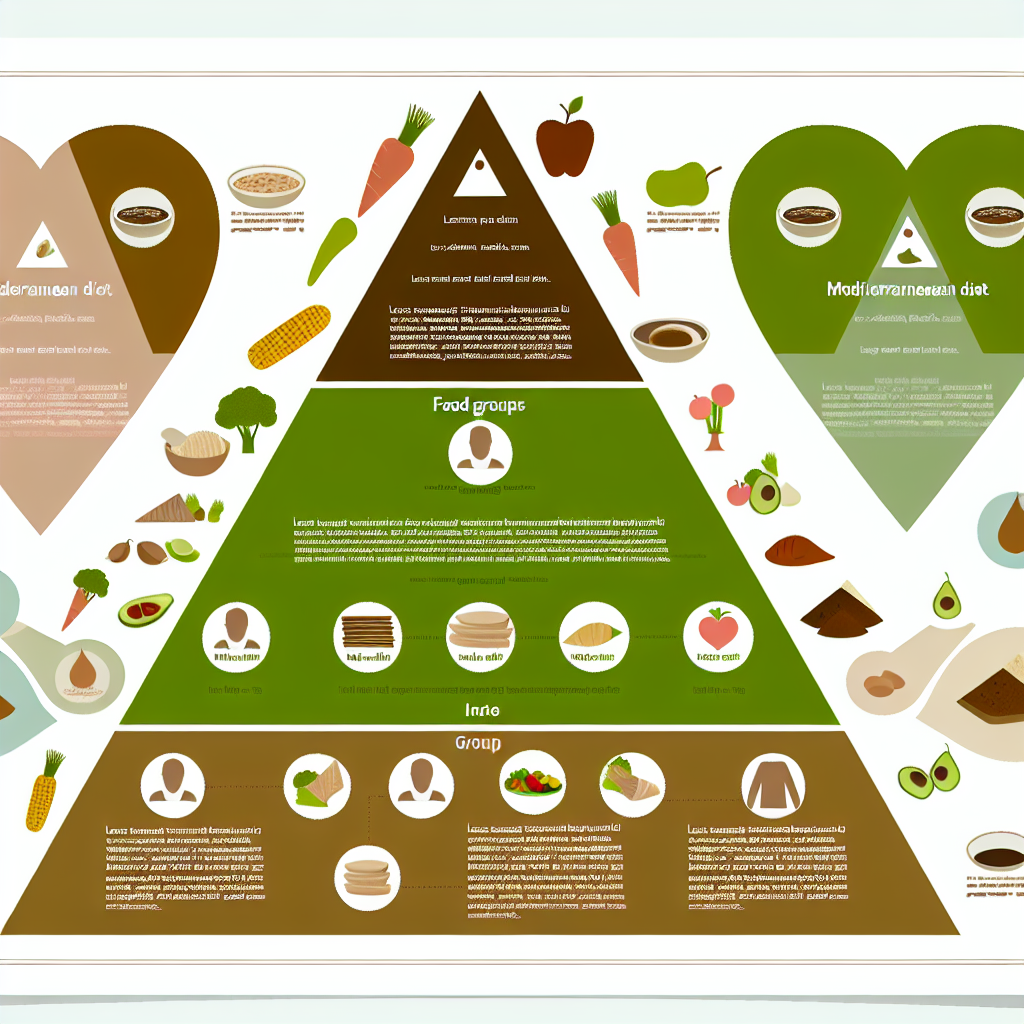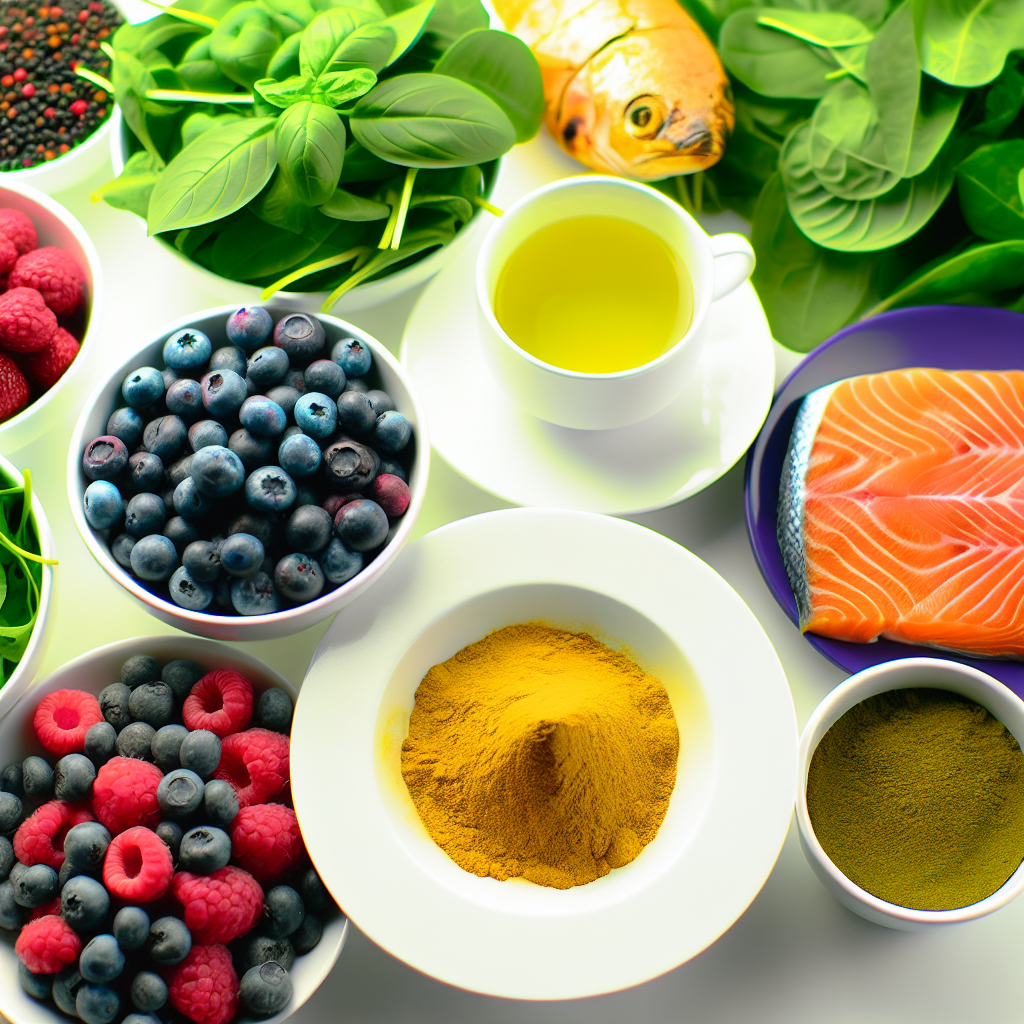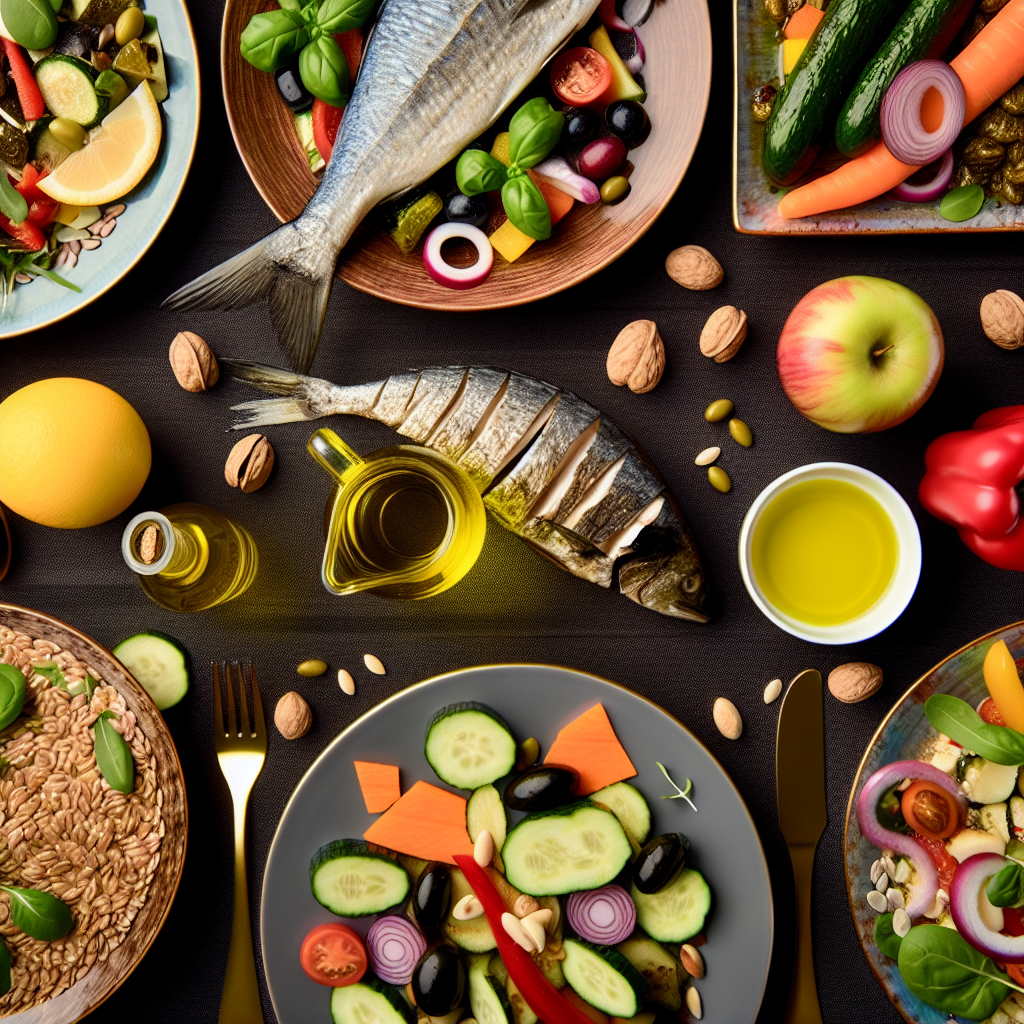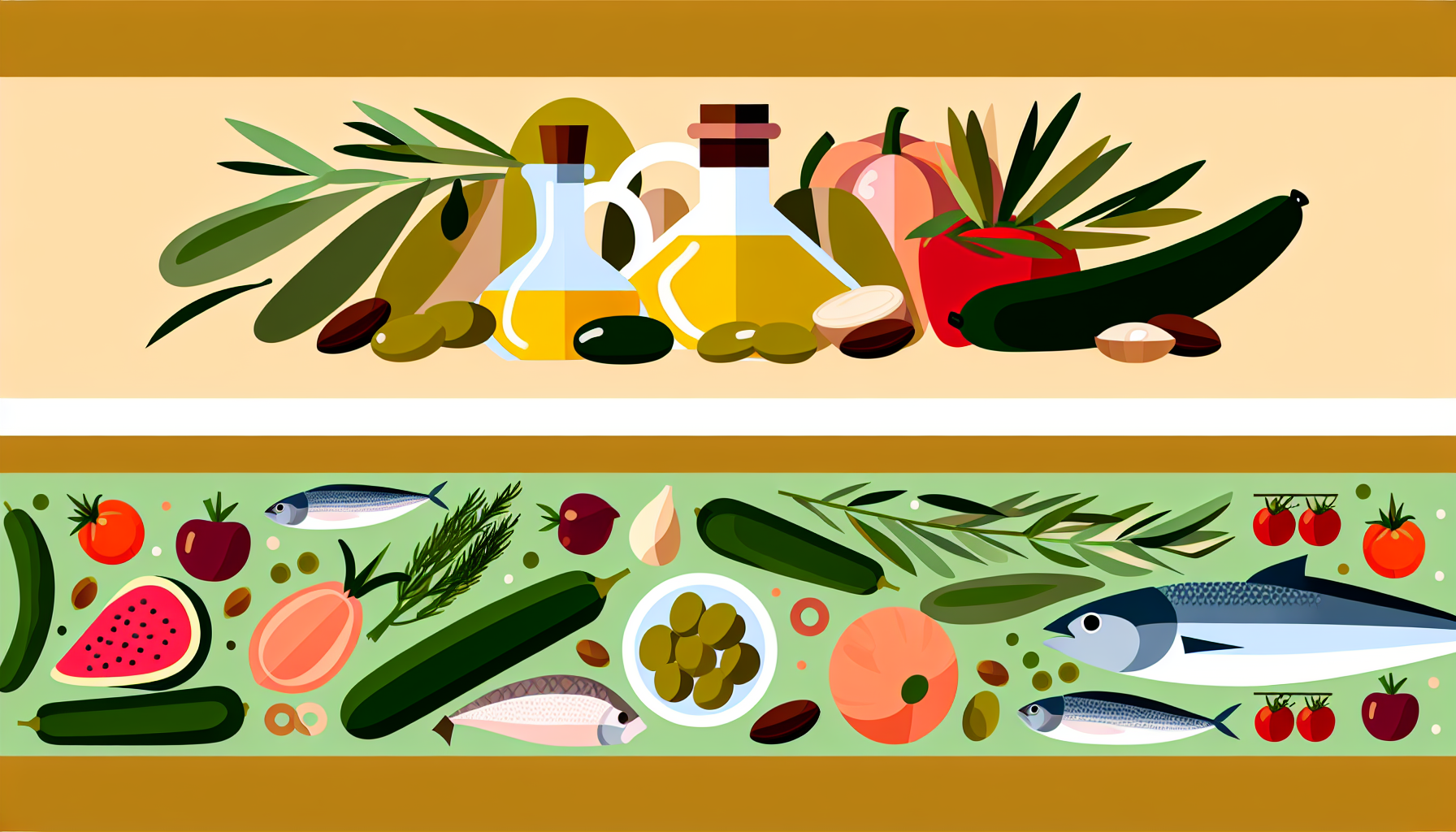Mediterranean Diet for Longevity: Complete Evidence-Based Guide
The Mediterranean diet reduces cardiovascular mortality by 40%, improves cognitive function, and extends life by 2-5 years. Decades of research support this dietary pattern as the gold standard for longevity and disease prevention.
Evidence-Based Health Benefits
The 4 Core Components
Practical Tips:
- Use for cooking at low-medium heat
- Drizzle on vegetables, salads, whole grains
- Choose high-quality, cold-pressed EVOO
- Store in dark, cool place to preserve polyphenols
PREDIMED: EVOO group showed superior cardiovascular outcomes vs low-fat diet
Practical Tips:
- Salmon, mackerel, sardines, anchovies, herring preferred
- Wild-caught when possible for higher omega-3 content
- Cook with EVOO, lemon, herbs
- Canned sardines/anchovies are convenient, affordable
1-3g EPA+DHA daily reduces inflammatory biomarkers, supports brain health
Practical Tips:
- Dark leafy greens daily (spinach, kale, arugula)
- Tomatoes for lycopene (anti-inflammatory)
- Cruciferous vegetables (broccoli, cauliflower)
- Berries 1-2 cups daily (quercetin-rich: blueberries, cranberries)
High vegetable intake correlates with lower all-cause mortality
Practical Tips:
- Whole grains: quinoa, farro, bulgur, barley, oats
- Legumes: chickpeas, lentils, white beans, fava beans
- Avoid refined grains and white bread
- Pair with EVOO and vegetables
Whole grain intake inversely associated with cardiovascular disease
Mediterranean Diet Food Lists
Extra virgin olive oil
3-4 tbsp daily, primary fat source
Fatty fish
Salmon, sardines, mackerel 2+ times/week
Vegetables
7-10 servings daily, emphasize leafy greens
Fruits
2-3 servings daily, especially berries
Whole grains
Quinoa, farro, oats - 3-6 servings daily
Legumes
Chickpeas, lentils, beans - 1 cup 2x weekly
Nuts & seeds
Handful daily, especially walnuts, almonds
Herbs & spices
Turmeric, garlic, basil, oregano - generous use
Green tea
2-3 cups daily (EGCG: IC50 <1μM for HMGB1)
Red wine (optional)
1 glass daily max (resveratrol benefits)
Poultry
2-3 times per week, skinless preferred
Eggs
3-7 per week
Cheese & yogurt
Small portions, Greek yogurt preferred
Potatoes
Moderate amounts, sweet potatoes preferred
Red meat
1-2 times per month maximum
Processed meats
Avoid entirely (cancer risk)
Refined grains
White bread, white rice, pastries
Added sugars
Desserts, sugary beverages
Trans fats
Margarine, processed foods
Highly processed foods
Fast food, packaged snacks

Mediterranean Foods That Reduce HMGB1
These Mediterranean diet staples have specific anti-aging effects through HMGB1 inhibition:

Mechanism:
IC50 <1μM for HMGB1 inhibition, induces autophagy-mediated degradation
How to Use:
Morning and early afternoon (avoid evening due to caffeine)
Mechanism:
Blocks HMGB1/NF-κB pathway, prevents nuclear-to-cytoplasmic translocation
How to Use:
With breakfast or as snacks
Mechanism:
Reduces HMGB1 expression, piperine enhances bioavailability 20x
How to Use:
Cook with or supplement 500-1000mg daily
Mechanism:
Reduces HMGB1 via SIRT1-mediated deacetylation
How to Use:
2 servings weekly minimum (3-4 oz each)
Mechanism:
Anti-inflammatory, reduces oxidative stress and HMGB1 release
How to Use:
Throughout the day with meals
3-Day Sample Meal Plan

Breakfast:
Greek yogurt with berries, walnuts, drizzle of honey, green tea
Lunch:
Mediterranean chickpea salad with tomatoes, cucumber, feta, EVOO dressing
Dinner:
Grilled salmon with quinoa, roasted vegetables (broccoli, peppers), EVOO
Snack:
Handful of almonds, apple
Breakfast:
Oatmeal with berries, ground flaxseeds, cinnamon, green tea
Lunch:
Lentil soup with vegetables, whole grain bread, side salad
Dinner:
Herb-roasted chicken, farro with vegetables, side of greens
Snack:
Hummus with carrot and cucumber sticks
Breakfast:
Vegetable omelet (spinach, tomatoes) with whole grain toast, EVOO
Lunch:
Tuna salad with white beans, tomatoes, olives, arugula
Dinner:
Mediterranean baked cod with cherry tomatoes, olives, capers over quinoa
Snack:
Greek yogurt with berries
Getting Started: 4-Week Transition Plan
- Replace butter/margarine with extra virgin olive oil
- Add 2-3 cups green tea daily
- Include berries with breakfast or as snacks
- Add fatty fish 2x this week (salmon, sardines, mackerel)
- Reduce red meat to 1x weekly or less
- Add legumes 2x weekly (chickpeas, lentils, beans)
- Replace refined grains with whole grains (quinoa, farro, oats)
- Increase vegetables to 7-10 servings daily
- Add turmeric to cooking (with black pepper for absorption)
- Add nuts/seeds daily (handful of walnuts, almonds)
- Eliminate processed foods and refined sugars
- Optional: Add 1 glass red wine with dinner (if no contraindications)
The Bottom Line
The Mediterranean diet has the strongest evidence base of any dietary pattern for longevity and disease prevention. Decades of research, including the landmark PREDIMED study, demonstrate:
- 40% cardiovascular mortality reduction with extra virgin olive oil + Mediterranean pattern
- Cognitive function improvement measurable within 12 weeks, reduces Alzheimer's risk
- Anti-inflammatory effects through HMGB1 reduction (green tea, berries, turmeric, omega-3s)
- Type 2 diabetes prevention through improved insulin sensitivity and blood sugar control
The diet is sustainable, enjoyable, and culturally adaptable—key factors for long-term adherence. Focus on the core principles: extra virgin olive oil as primary fat (3-4 tbsp daily), fatty fish twice weekly, abundant vegetables (7-10 servings), whole grains and legumes, and minimal processed foods.
Start with the 4-week transition plan to gradually shift your eating patterns. Most people notice improved energy and mental clarity within 2-3 weeks, with cardiovascular and metabolic benefits measurable at 8-12 weeks. This isn't a diet—it's a sustainable lifestyle approach supported by the strongest scientific evidence available.
